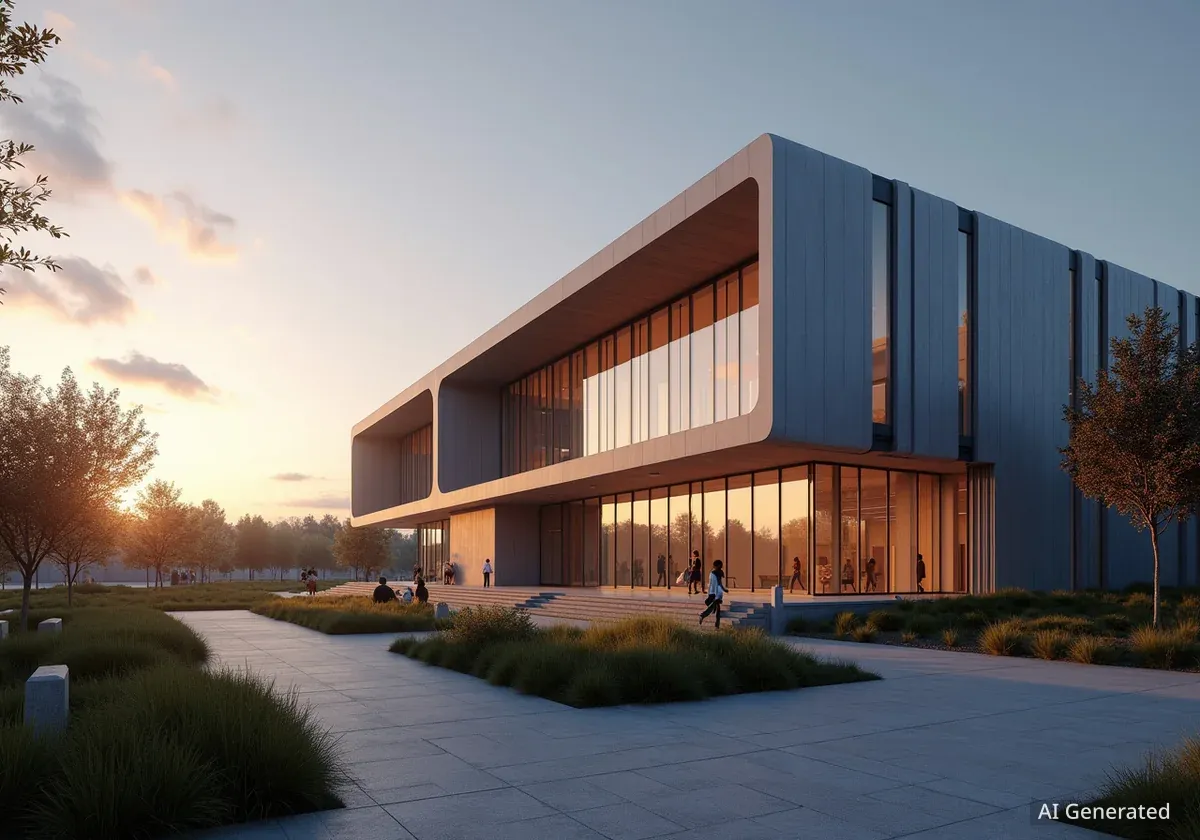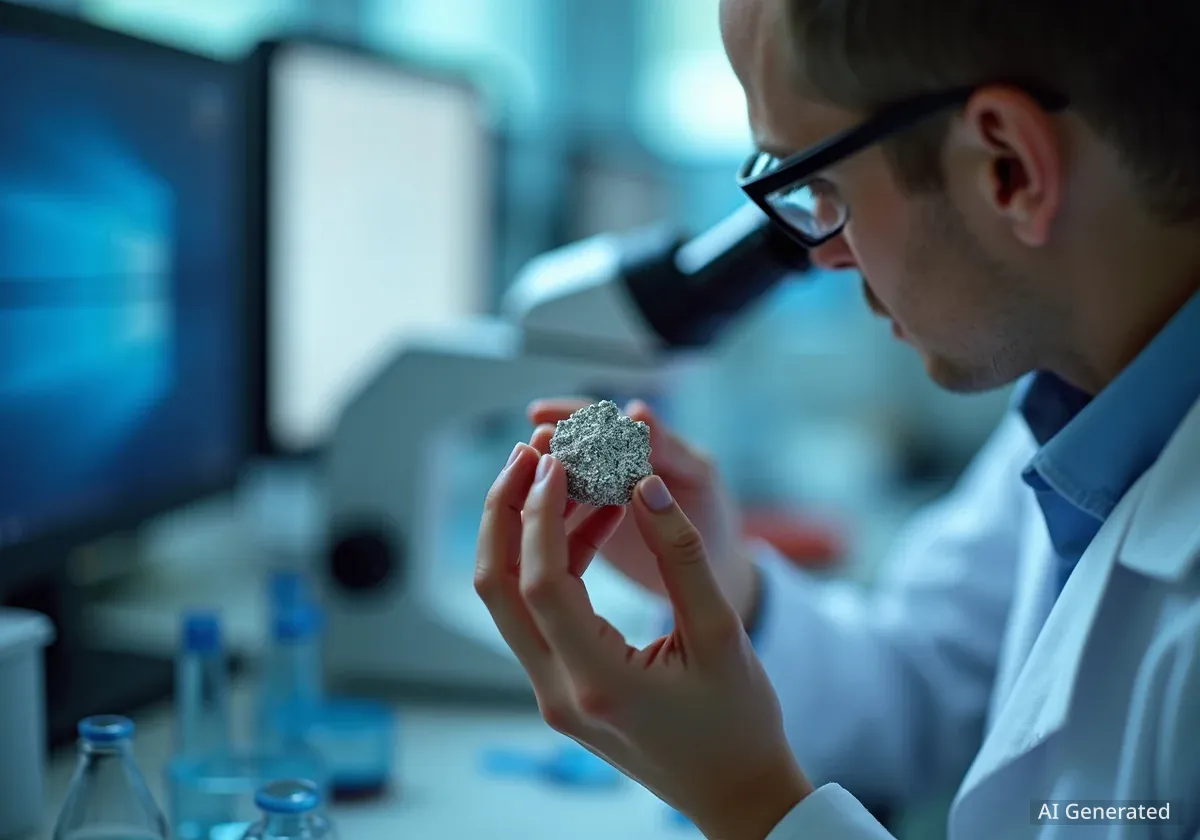Northwood University has announced a major initiative to establish a new research facility focused on artificial intelligence. The project, valued at $250 million, is supported by a significant donation from a university alumnus. The new center will be named the Dawson Institute for AI and Human-Centered Computing.
The institute aims to become a leading center for AI research, with a specific focus on ethical development and practical applications that benefit society. The project includes the construction of a new state-of-the-art building on the university's main campus and the hiring of dozens of new faculty members and researchers.
Key Takeaways
- Northwood University is launching a $250 million artificial intelligence research institute.
- The project is anchored by a $150 million donation from tech entrepreneur and alumna Eleanor Dawson.
- The Dawson Institute will focus on ethical AI, healthcare, climate science, and public policy.
- Plans include constructing a 150,000-square-foot facility and hiring 50 new faculty members over five years.
A New Era of AI Research
Northwood University is positioning itself at the forefront of artificial intelligence innovation with the creation of the Dawson Institute. University officials stated the center’s primary mission is to advance AI technology while carefully considering its societal impact. The institute will bring together experts from various fields to collaborate on complex challenges.
The university president, Dr. Alistair Finch, outlined the vision for the new center during a press conference on Tuesday. He emphasized that the institute will not only pursue technological breakthroughs but also lead conversations on AI governance and ethics.
"We are not just building a facility; we are creating an ecosystem for responsible innovation," Dr. Finch said. "The Dawson Institute will ensure that the development of artificial intelligence is guided by human values and serves the public good."
The institute will operate as an interdisciplinary hub, connecting the university's existing departments of computer science, engineering, medicine, law, and public policy. This structure is designed to foster a holistic approach to AI research and education.
Details of the Landmark Donation
The foundation of this ambitious project is a $150 million donation from Eleanor Dawson, a 1992 graduate of Northwood's computer science program and founder of the software company Innovatech Solutions. Her contribution is the largest single gift in the university's 140-year history.
Project by the Numbers
- Total Project Cost: $250 million
- Lead Donation: $150 million
- New Facility Size: 150,000 square feet
- New Faculty Positions: 50
- Projected Completion: Fall 2027
During the announcement, Dawson spoke about her motivation for the gift. She highlighted the need for academic institutions to lead the way in developing AI that is both powerful and trustworthy.
"Artificial intelligence has the potential to solve some of the world's most pressing problems, but it also presents significant risks if not developed thoughtfully," Dawson stated. "I am proud to support my alma mater in creating a space where the brightest minds can work on building a future where AI benefits all of humanity."
The remaining $100 million for the project will be sourced from a combination of university capital funds and a dedicated fundraising campaign that will launch next month. These funds will support the building's construction, lab equipment, and endowed professorships.
Facility Design and Research Focus
The planned 150,000-square-foot building will be located at the heart of the campus's science and engineering quad. It will feature advanced computational labs, collaborative workspaces, and public areas designed to encourage interaction between students, faculty, and industry partners.
Construction is scheduled to begin in the spring of 2025, with an expected completion date in the fall of 2027. The building is being designed with sustainability in mind, aiming for a LEED Platinum certification.
AI in Higher Education
Northwood University's initiative is part of a growing trend among leading academic institutions. Universities like MIT, Stanford, and Carnegie Mellon have all made nine-figure investments in AI research over the past decade. These centers aim to attract top talent, secure research grants, and prepare students for a job market increasingly shaped by AI technologies.
The Dawson Institute will concentrate its research on several key areas. University leadership has identified these initial priorities to guide its work and attract specialized talent.
Core Research Areas
- AI in Healthcare: Developing diagnostic tools and personalized treatment plans.
- Climate Science Modeling: Using AI to predict environmental changes and find sustainable solutions.
- Ethical AI and Governance: Creating frameworks for fairness, transparency, and accountability in AI systems.
- AI for Public Policy: Analyzing data to help governments improve public services and infrastructure.
Curriculum and Community Impact
Beyond research, the Dawson Institute will have a significant educational component. Northwood University plans to introduce several new academic programs, including an undergraduate major in AI and new interdisciplinary graduate degrees. These programs will be available to students starting in the 2026 academic year.
The institute will also offer resources to students across all majors. Workshops on AI literacy and ethics will be made available to the entire student body. The goal is to ensure that every Northwood graduate, regardless of their field of study, has a foundational understanding of artificial intelligence.
The university also plans for the institute to engage with the local community. This includes partnerships with local school districts to promote STEM education and collaborations with local businesses to apply AI research to regional economic challenges. An annual public conference on AI and society is also planned to foster broader public dialogue.
Dr. Finch stated that the institute will create an estimated 200 new jobs in the region, including faculty, research staff, and administrative roles. This is expected to provide a substantial boost to the local economy. The university is committed to hiring from the local community for non-specialized roles and working with local contractors during the construction phase.





